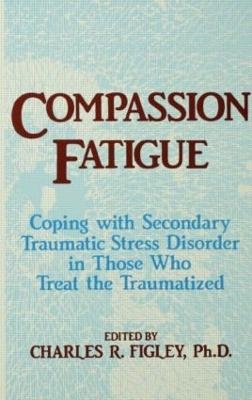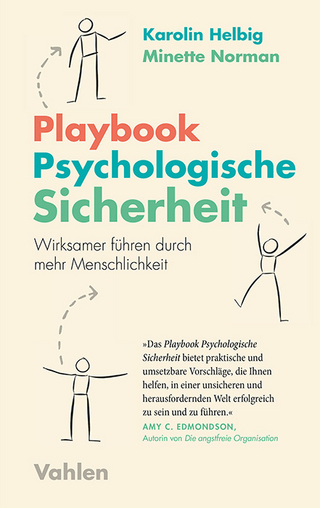
Compassion Fatigue
Brunner-Mazel Inc (Verlag)
978-0-87630-759-5 (ISBN)
First published in 1995. Traumatology, or the field of traumatic stress studies, has become a dominant focus of interest in the mental health fields only in the past decade. Yet the origin of the study of human reactions to traumatic events can be traced to the earliest medical writings in Kunus Pyprus, published in 1900 B.C. in Egypt. Many factors account for the recent emergence of this field, including a growing awareness of the long-term consequences of shocking events. Among these consequences are violence toward others, extraordinary depression, dysfunctional behavior, and a plethora of medical maladies associated with emotional stress. This is the latest in a series of books that have focused on the immediate and long-term consequences of highly stressful events. The purposes of the book, then, are (a) to introduce the concept of compassion fatigue as a natural and disruptive by-product of working with traumatized and troubled clients; (b) to provide a theoretical basis for the assessment and treatment of compassion stress and compassion fatigue: (c) to explain the difference between compassion fatigue and PTSD, burnout, and countertransference; (d) to identify innovative methods for treating compassion fatigue in therapists, and (e) to suggest methods for preventing compassion fatigue.
Charles R. Figley
Chapter 1 Compassion Fatigue as Secondary Traumatic Stress Disorder: An Overview, Charles R.Figley; Chapter 2 Survival Strategies: A Framework for Understanding Secondary Traumatic Stress and Coping in Helpers, PaulValent; Chapter 3 Working with People in Crisis: Research Implications, Randal D.Beaton, Shirley A.Murphy; Chapter 4 Working with People with PTSD: Research Implications, Mary AnnDutton, Francine L.Rubinstein; Chapter 5 Sensory-Based Therapy for Crisis Counselors, Chrys J.Harris; Chapter 6 Debriefing and Treating Emergency Workers, Susan L.McCammon; Chapter 7 Treating the “Heroic Treaters”, Mary S.Cerney; Chapter 8 Treating Therapists with Vicarious Traumatization and Secondary Traumatic Stress Disorders, Laurie AnnePearlman, Karen W.Saakvitne; Chapter 9 Preventing Secondary Traumatic Stress Disorder, JanetYassen; Chapter 10Preventing Compassion Fatigue: A Team Treatment Model, James F.Munroe, JonathanShay, LisaFisher, ChristineMakary, KathrynRapperport, RoseZimering; Chapter 11 Preventing Institutiona I Secondary Traumatic Stress Disorder, Don R.Catherall; Epilogue: The Transmission of Trauma, Charles R.Figley; Index; Subject Index;
| Erscheint lt. Verlag | 26.6.1995 |
|---|---|
| Reihe/Serie | Psychosocial Stress Series |
| Verlagsort | New York |
| Sprache | englisch |
| Maße | 152 x 229 mm |
| Gewicht | 700 g |
| Themenwelt | Geisteswissenschaften ► Philosophie |
| Geisteswissenschaften ► Psychologie ► Arbeits- und Organisationspsychologie | |
| Medizin / Pharmazie ► Medizinische Fachgebiete ► Neurologie | |
| Medizin / Pharmazie ► Medizinische Fachgebiete ► Notfallmedizin | |
| Medizin / Pharmazie ► Medizinische Fachgebiete ► Psychiatrie / Psychotherapie | |
| Sozialwissenschaften ► Pädagogik ► Sozialpädagogik | |
| Sozialwissenschaften ► Soziologie | |
| ISBN-10 | 0-87630-759-4 / 0876307594 |
| ISBN-13 | 978-0-87630-759-5 / 9780876307595 |
| Zustand | Neuware |
| Haben Sie eine Frage zum Produkt? |
aus dem Bereich


